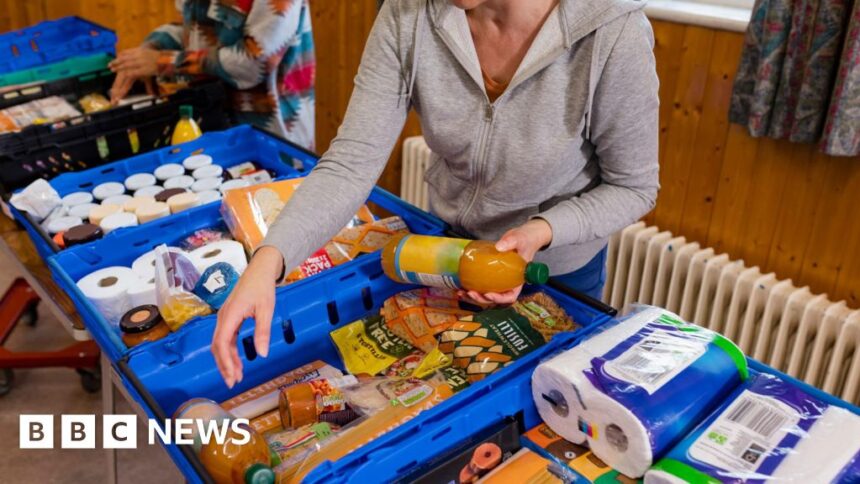The silent crisis of hunger in Britain has reached alarming proportions as food banks across the UK report unprecedented demand in early 2024, with many facilities now serving triple the number of people compared to pre-pandemic levels. Behind these statistics are families making impossible choices between heating their homes or feeding their children.
At the Trussell Trust’s Westminster branch, manager Lily Harrington witnesses the human cost daily. “We’re seeing people who never imagined needing food assistance—teachers, nurses, civil servants—queuing before dawn,” Harrington told CO24 News. “One gentleman told me he hadn’t eaten for three days so his children could have meals.”
The Trust’s latest data reveals a disturbing trend: approximately 1.3 million emergency food parcels were distributed between January and March 2024 alone, representing a 32% increase from the same period last year. Nearly 40% of recipients are children.
Economic analysts point to a perfect storm of factors driving this crisis. “The combination of persistent inflation in food prices, rising energy costs, and stagnant wages has created an untenable situation for millions of households,” explains Dr. Emma Whitfield, economist at King’s College London. “Many working families simply cannot stretch their incomes to cover essential needs.”
The geographic spread of food insecurity has also shifted. While urban centers have historically reported higher demand, rural communities are now experiencing the fastest growth in food bank usage, with some areas seeing increases of up to 45% year-on-year.
Government response has been criticized as insufficient by anti-poverty advocates. The Department for Work and Pensions maintains that recent benefit increases and targeted support programs should provide adequate relief, but frontline workers disagree vehemently.
“Policy changes haven’t kept pace with the reality on the ground,” says Marcus Thornton, director of Food Share UK. “The £15 weekly increase in Universal Credit barely covers the rise in food costs, let alone addresses the accumulated debt many families have accrued during years of economic pressure.”
Corporate involvement has increased significantly, with major supermarket chains donating surplus food and financial resources. Tesco recently announced a £5 million commitment to food redistribution networks, while Sainsbury’s has expanded its food collection points to all 1,400 stores nationwide.
However, charity leaders stress that increased donations alone cannot address the structural issues. “We’re grateful for every tin and packet, but food banks were never meant to be permanent fixtures in British society,” notes Catherine Murray of the Independent Food Aid Network. “We need comprehensive policy changes that address poverty at its roots.”
The psychological impact on recipients remains a largely undiscussed aspect of the crisis. Mental health professionals report increasing cases of anxiety, depression, and shame among those forced to rely on food aid. Children in affected households show higher rates of school absenteeism and decreased academic performance.
As Britain approaches critical political crossroads, the question remains: will addressing the structural causes of food poverty become a priority for policymakers, or will this emergency response system become an accepted feature of modern British life?










